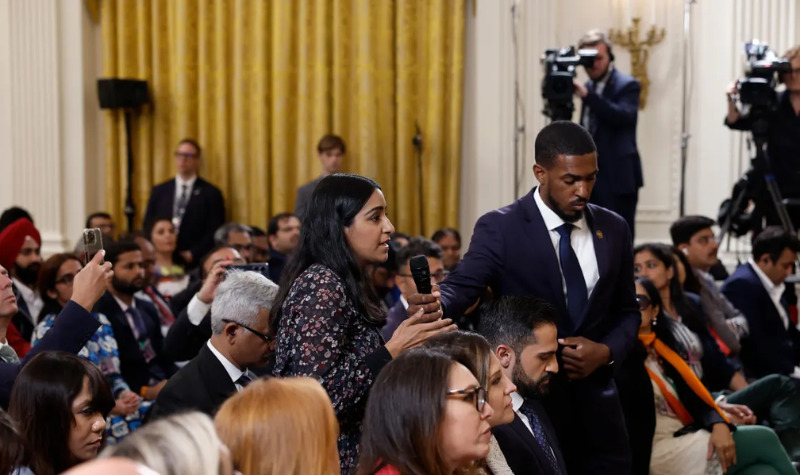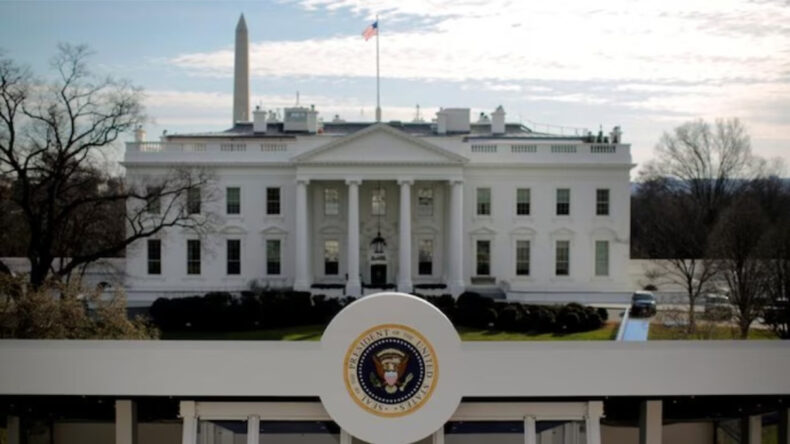Washington, D.C.
In a shocking incident at a press conference held at the White House, Wall Street Journal reporter Sabrina Siddiqui was assaulted after asking a question regarding minority issues in India. The event which took place earlier during a news conference given by President Joe Biden and Indian Prime Minister Narendra Modi has prompted harsh criticism from the White House which emphasized the importance of press freedom and respect for journalists. But it is crucial to address the inaccuracies in Siddiqui’s statements regarding the treatment of minorities in India and the United States.
Prime Minister Modi’s Commitment to Minority Rights
Siddiqui’s statements fail to acknowledge India’s secular and democratic foundation, with the Constitution guaranteeing fundamental rights and protections for all citizens, regardless of their religion, caste, or ethnicity. India’s legal framework, including anti-discrimination laws and affirmative action policies, strives to ensure equal treatment and opportunities for all citizens, irrespective of their backgrounds. Siddiqui’s portrayal overlooks India’s rich cultural diversity and the coexistence of multiple religions, languages, and traditions. The country’s history showcases a tradition of tolerance and respect for different faiths and cultures. Siddiqui’s statements also fail to recognize the progress made in improving the socioeconomic conditions of minority communities in India.
When asked about the steps being taken by the Indian government to enhance the rights of Muslims and other minority communities, Prime Minister Narendra Modi underscored the democratic values shared by India and the United States.
“In India’s democratic values, there is absolutely no discrimination, neither based on caste, creed, or age or any kind of geographic location,” Modi said through a translator in response to Siddiqui.
“Indeed, India is a democracy. And as President Biden also mentioned, in India and America both countries, democracy is in our DNA. Democracy is our spirit. Democracy runs in our veins. We live in a democracy,” he added.

Support for Journalistic Freedom
The White House reaffirmed its commitment to press freedom both domestically and globally. The incident served as a reminder of the continued obstacles that journalists confront worldwide and the importance of preserving their rights. The statement requested governments around the world to safeguard journalists from intimidation and harassment, ensuring an environment where various opinions can be heard without fear of retaliation.
White House Swiftly Responds
While the White House’s response to the assault on Sabrina Siddiqui rightfully defends the importance of a free press, it is vital to acknowledge the existing discrimination faced by minority communities, particularly Black Americans, within the United States. Addressing systemic racism, police brutality, and socioeconomic disparities, and ensuring equal political representation are pressing issues that need to be confronted to create a more inclusive and just society.
Outrage and Calls for Investigation
The incident has sparked widespread outrage from media organizations, human rights activists, and proponents of press freedom. Notable organizations, including the Committee to Protect Journalists (CPJ), expressed concern about the journalist’s mistreatment and demanded a thorough investigation. The CPJ stated, “Journalists must be able to ask difficult questions without fear of retaliation. This incident emphasizes the importance of protecting journalists’ rights and ensuring their safety while performing critical work.”
Shining Light on Minority Rights
The incident involving Sabrina Siddiqui has triggered discussions on minority treatment in India. However, it is important to address the misconceptions and present a balanced perspective. India’s commitment to minority rights, preservation of cultural diversity, and efforts towards socioeconomic inclusivity demonstrate its commitment to creating an inclusive society. While challenges exist, ongoing initiatives and policies aim to address these issues and promote equality. By recognizing the complexities of the situation and fostering constructive dialogue, we can work towards a more inclusive India that embraces its diverse population and upholds the rights and dignity of all its citizens.













